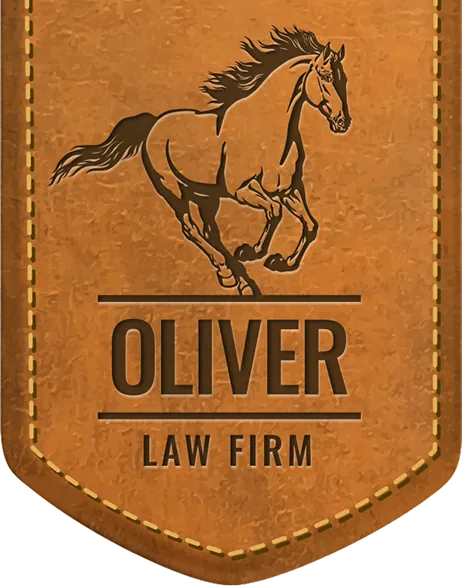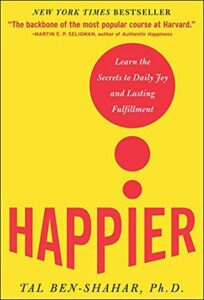
From the time I was a little girl–3 years old, my parents called me their little tornado. I was scattered, loud, always forgetting something, or losing something, running late, etc. They used to say, “we always know where Katie has been because she leaves a trail of little messes behind her.” Seriously. It’s like the first thing they tell people when I introduce them to anyone.
This is why I KNOW in my heart, that organization, time management, prioritizing—are skills a person can develop…even if they aren’t born that way, because I sure wasn’t!
When I had Catalina, I was in my first year of college. I learned very quickly, that it was sink or swim. I either had to figure out how to be more efficient with time, or quit school. I was juggling single motherhood, 3 jobs, and college, and I didn’t want to quit. These were the months in my life that I learned to manage time, become more organized, and prioritize. I read this book because I wanted to remind myself of ways to be effective in all areas of my life, and while this book mostly is geared toward life in general, I am going to apply what I have learned to work.
Habit 1: Be proactive—not reactive.
Have you ever gone longer than 6 months to do your teeth cleaning? I have. It results in cavities and root canals by the way. That’s being Reactive. Waiting for something to come to me and then deal with it. Let’s be proactive instead! For example at work, when I see an email between Sach and Keith McPherson scheduling a deposition, what do I do? Do I wait for Sach to send me an email telling me to draft the notice? That would be reactive. Instead, I will be proactive and just start drafting the notice since I know it will be coming to me anyways.
Take responsibility for your life. You make your own choices. No one else does.
Habit 2: Begin with the End in Mind
This habit requires a sense a vision and self chosen values. You take leadership in your own life- at work, at home, in relationships—in other words, what kind of person do you want to be at work? At home? In your relationships? When the day is over, what do you want to have said about you?
Everything we do, we do it with the end in mind. Meetings, depositions, cases, everything.
Let’s think about how this can apply to work.
This book says we should have a mission statement not only for our firm, our business, but also ourselves. So I have to think, what am I about? When I come to work every day, what do I want to be about? What is important to me, to bring to the work place? What is my mission statement? I challenge everyone to think about that and even write a few sentences down. Because everything you do at work, will be based around your mission statement.
So my mission statement would include
- To be reliable
- To be joyful
- To be positive
- To learn
One thing that motivates me to be productive is setting standards for the way I choose to do something. I am accountable to myself. When I walk out the door I ask, did I do my best today?
So now I take my job description and I apply this mindset of wanting to be reliable, to be joyful, to learn. When Ryan asks me to do something, I want him to walk back in his office and never think about it again. To know—it’s done. CS has got it. This helps me be effective and manage time wisely. Because if what I truly desire to bring to my work place is reliability, then I’ll bust my butt and be productive to achieve that. It all comes back to the book’s idea of a mission statement.
Habit 3: Put First Things First
“Things that matter most should never be at the mercy of things that matter least”
Focus on what is truly important and say No to everything else. Look at your job description. What were you hired to do? Well, unless you have had a conversation with Sach or Frank and they told you—your job description has changed—then your job, your mission statement, is the job description you got when you were hired. And that is what is most important. Let’s take me and Sandy for example. One of Sandy’s primary job descriptions is document management. Scanning in and naming documents. But that is not one of my job descriptions.
I draft lots of letters every day though. And on days that are slow, I will scan in my documents and save them in TW to try to be helpful to Sandy. But on days that I am super busy with my own personal “job description” tasks, I say NO to scanning, and focus on what is important to me and my job. And instead—I put the documents in sandy’s scan pile. Now is scanning documents into Trial works INCREDIBLY important? Yes! Sandy!!!! Your job is important. Which is why when you are busy doing your job description, you should say NO to things that you do to help me out….like calling Dr. Venus when I don’t want too.
Habit 4: Think Win-Win – Mutual Benefit and Respect
What is the alternative to WIN-WIN? Win-Lose. Which ultimately means Lose-Lose.
In order to conquer this habit, you must develop your integrity, maturity, and a “there is an abundance” mentality. You must stick to your values, be mature enough to express ideas and consider other people’s ideas AND their feelings, and not “hoard” your secrets to success. Develop solutions that make both sides win.
Habit 5: Seek First to Understand, then to be understood
The one area that feels like you aren’t being efficient…. Because you cannot be “efficient” when it comes to relationships. You will not have true understanding of a person when you are “on the clock” during a discussion. But, for every hour you spend in understanding you will save 10 to 50 hours in the future that would otherwise be spent in not understanding. Delayed efficiency gratification? Sorta.
This is by far the hardest habit to master and also a very crucial one. People want to be heard, and understood. We naturally want to listen with the intent to reply….constantly thinking of what we are going to say next. We don’t listen to understand that person.
The key to influencing another person (or being effective with other people), is to allow ourselves to be influenced by another. They need to feel like you are influenced by them—that you understood them and it has affected you. If you can master this, it will give you so much power in dealing with other humans.
Habit 6: Synergize
Creating alternative solutions that can meet multiple people’s needs.
People see things differently. And we need their opinions. We need their perspective. I used to get so fired up inside during focus groups when the jurors would say negative things about our clients or our case. When they would build up “the bad guy”. It’s interesting how much my viewpoint has changed. Now I welcome their adverse opinions because it helps us see past our own subjective world, and in turn, helps us prepare better for our clients. Where on earth would Sach be without Ryan to give him the “other” opinion? To play the devil’s advocate? He’d be lost!!
With these varying opinions and viewpoints, we are able to develop alternative ideas and options which can only strengthen us, our case, our firm.
Habit 7: Sharpen the Saw
Renew! How do you sharpen the saw?
For me, I have found that between 1-2 every day is the time I am least affective at the office. I think that is typical for most people. I hate that! I had been trying different methods in order to return from lunch renewed, sharpened, alert. After trying several different things, I have found that going for a run during my lunch makes a huge difference for me. I come back and my adrenalin is up, my blood is flowing and I am READY to work, and it carries me through to 4:30, 5:00 or 6:00 pm.
Figure out when you are least effective at work and experiment with different methods that will jump-start you.
“Highly effective people don’t really manage time, they manage self.”
I read this book and applied it to my specific job. I encourage everyone to do the same! It will also bring insight into being effective at home and in your relationships, which ultimately is the most important part of life, to do some serious soul searching, and self-evaluation and then applying various techniques suggested to assist with a person’s quest. No one can be happier 100% of the time and like with life there are peaks and valleys and you have to have faith that you will come out of the valleys.
a Free Consultation



